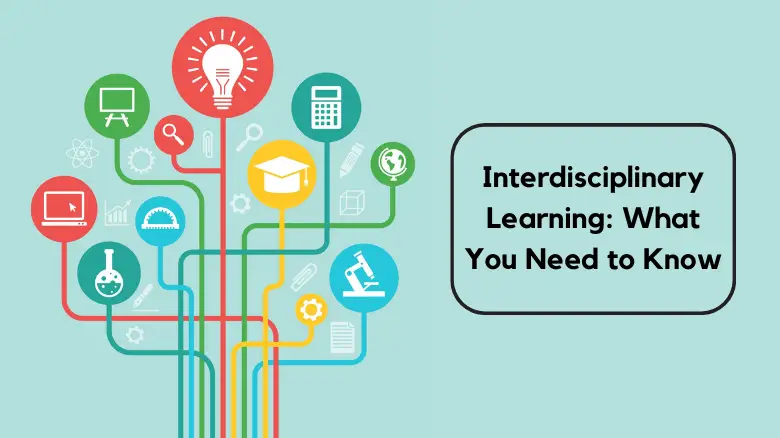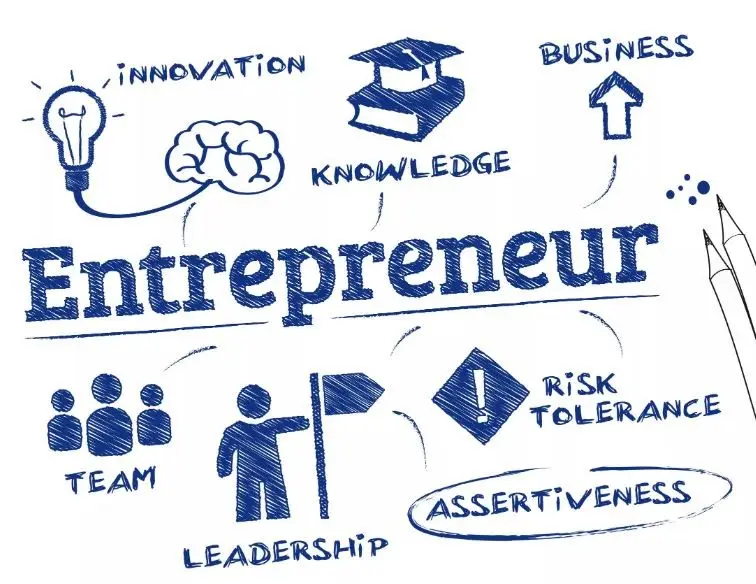The job market is evolving faster than ever before. Automation, artificial intelligence, climate change, and digital transformation are reshaping the global economy. The World Economic Forum predicts that over 85 million jobs may be displaced by 2025, while 97 million new roles could emerge. Many of these new roles don’t even exist yet.
How can educators, parents, and policymakers prepare students for jobs that don’t exist yet? The answer lies not in teaching them a specific set of skills for a single job—but in empowering them with adaptable, future-proof mindsets and competencies.
In this article, we’ll explore the skills, educational models, and strategies that can equip today’s students for tomorrow’s unpredictable workforce.
Foster a Growth Mindset Over a Fixed One
A growth mindset—the belief that abilities and intelligence can be developed—has proven to be a powerful predictor of success in uncertain environments.
Why it matters:
Encourages resilience and adaptability.
Reduces fear of failure, which is vital in innovative fields.
Supports continuous learning—essential for jobs that are constantly changing.
How to encourage it:
Praise effort, not just results.
Teach students to embrace challenges.
Incorporate reflection sessions to help them analyze what they’ve learned.
“In a world of constant change, being open to growth is more important than ever.”
Focus on Transferable Skills
Instead of focusing solely on technical knowledge, prepare students with transferable skills—the kind that are valuable across industries and roles.
Key transferable skills:
Critical thinking & problem-solving
Creativity & innovation
Communication & collaboration
Emotional intelligence
Digital literacy
Adaptability & flexibility
These skills help students pivot between careers and remain employable, even when technology or industry trends shift dramatically.
Cultivate Digital Fluency and Tech Awareness
While it’s impossible to predict exactly which technologies will dominate the future, it’s clear that digital literacy will be foundational.
How to implement it:
Integrate coding, AI basics, data literacy, and digital ethics into curricula.
Encourage students to use digital tools for research, collaboration, and content creation.
Use edtech platforms like Canva, ChatGPT, and Google Workspace to familiarize students with real-world tools.
Being digitally fluent means students can not only use technology—but understand, evaluate, and create with it.
Encourage Lifelong Learning Habits
In a future where skill requirements will constantly evolve, lifelong learning will be essential.
Ways to promote it:
Introduce project-based learning (PBL) to make learning self-directed.
Encourage students to pursue online certifications and micro-courses.
Develop habits of self-reflection, goal-setting, and independent study.
Schools should teach students how to learn, not just what to learn.
Support Interdisciplinary Learning

Future jobs will not be siloed. Careers like AI ethics specialist, climate data analyst, or bioengineer blend multiple disciplines.
Strategies to apply:
Offer STEAM education (Science, Tech, Engineering, Arts, Math) instead of traditional STEM.
Encourage cross-subject projects that combine skills from science, literature, art, and technology.
Let students create portfolios that reflect a blend of their interests.
Interdisciplinary learning mirrors real-world complexity and prepares students to connect the dots across domains.
Prioritize Emotional Intelligence (EQ)
AI may be taking over cognitive and analytical tasks, but human-centric traits like empathy, leadership, and ethical reasoning will remain irreplaceable.
Why EQ matters:
Enables better teamwork, leadership, and client interactions.
Reduces stress and improves mental health.
Enhances decision-making in uncertain situations.
Activities to improve EQ:
Group discussions on ethics and values.
Role-playing to explore different perspectives.
Journaling and mindfulness exercises.
Teach Entrepreneurial Thinking

In a world where traditional jobs may be replaced by gig work, freelancing, or self-employment, entrepreneurial thinking is a superpower.
Key elements:
Risk-taking and problem-solving
Innovation and creativity
Business basics (finance, marketing, management)
Resilience in the face of failure
How to integrate it:
Start school-based mini-business projects.
Invite entrepreneurs to speak at events or mentor students.
Use simulations and games that involve resource management and decision-making.
Nurture Global Citizenship and Cultural Awareness
Future careers will be global in nature, requiring students to collaborate across borders and cultures.
Skills required:
Cross-cultural communication
Appreciation for diversity
Understanding global issues like climate change, inequality, and ethics
How to teach it:
Collaborate with schools in other countries for global projects.
Use online forums and pen-pal programs to foster global conversations.
Include global history and current affairs in the curriculum.
Provide Career Exploration Early and Often
Students can’t prepare for jobs they haven’t imagined. That’s why early exposure to varied career paths is crucial.
Ideas for exposure:
Organize career days with professionals from emerging industries.
Include internships or job-shadowing programs from middle school onwards.
Use virtual job simulations or role-based learning.
Let students see the future before they live in it.
Rethink Assessment and Grades
Traditional assessments—standardized tests and rote memorization—don’t reflect the future of work.
Why change is needed:
Real-world problems aren’t solved by multiple choice answers.
Future jobs demand critical thinking and creativity, not just recall.
Students need feedback that helps them grow, not just score.
Future-ready assessment ideas:
Digital portfolios
Performance-based tasks
Peer reviews and group projects
Real-world challenges judged by industry experts
Examples of Future Careers That Don’t Exist Yet
To spark imagination, here are some jobs that could emerge in the next decade:
| Job Title | Possible Description |
|---|---|
| AI Personality Designer | Creates emotional responses and personalities for artificial intelligence applications |
| Drone Traffic Controller | Manages flight patterns and safety for urban drone logistics |
| Digital Detox Therapist | Helps individuals and families manage screen time and mental health |
| Space Tourism Guide | Guides tourists on commercial space flights and lunar experiences |
| Climate Resilience Strategist | Designs systems and infrastructure to withstand environmental challenges |
| VR Classroom Architect | Develops immersive educational experiences for virtual schools |
| Human-Machine Teaming Specialist | Improves collaboration between robots and human workers |
| Data Ethics Compliance Officer | Ensures companies use data responsibly and ethically |
Preparing students for the future means preparing them for careers we haven’t yet conceived.
Final Thoughts: Building a Foundation for the Unknown
The world is transforming at lightning speed. As automation, AI, and global connectivity reshape the job market, the only way to prepare students for jobs that don’t exist yet is by making them lifelong learners, adaptable thinkers, emotionally intelligent collaborators, and creative problem-solvers.
Parents, teachers, and institutions must shift focus from job training to human development—ensuring students have the mindset, curiosity, and skills to thrive in any future.
By emphasizing critical skills, digital fluency, and resilience, we can prepare today’s learners not just to survive, but to lead the world of tomorrow.
FAQs
1. Why is it important to prepare students for unknown jobs?
Because technology and global shifts are rapidly changing the employment landscape. Preparing students with flexible, future-ready skills ensures they stay relevant and employable.
2. What skills are most important for the future workforce?
Transferable skills such as adaptability, digital literacy, emotional intelligence, creativity, and critical thinking are crucial.
3. How can schools adapt their curriculum for future careers?
By focusing on interdisciplinary learning, project-based education, entrepreneurship, digital tools, and global citizenship programs.
Related posts:
 Teaching Kids Cybersecurity in the Digital Age: Essential Tips for Parents
Teaching Kids Cybersecurity in the Digital Age: Essential Tips for Parents
 Top Mobile Technology Trends in 2025: What’s Shaping the Future of Smartphones?
Top Mobile Technology Trends in 2025: What’s Shaping the Future of Smartphones?
 India’s Initiatives Against Plastic Waste: A Road Towards a Sustainable Future
India’s Initiatives Against Plastic Waste: A Road Towards a Sustainable Future
 Your Life Can Change in Just One Minute – The Ultimate Guide to Success & Motivation!
Your Life Can Change in Just One Minute – The Ultimate Guide to Success & Motivation!
 Stop Worrying and Start Living: A Guide to a Stress-Free Life
Stop Worrying and Start Living: A Guide to a Stress-Free Life
 No Negative Zindagi: The Ultimate Guide to a Positive, Happy, and Successful Life!
No Negative Zindagi: The Ultimate Guide to a Positive, Happy, and Successful Life!
